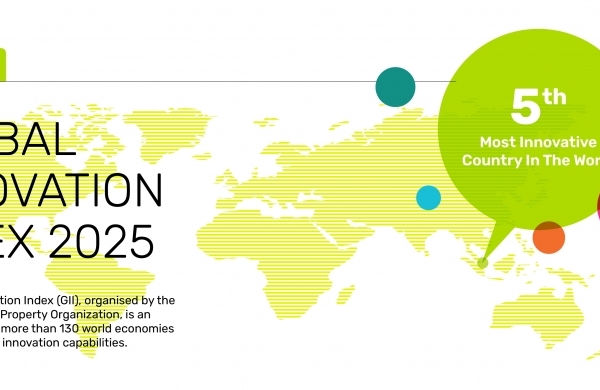Did not receive verification mail? Please confirm whether the mailbox is correct or not Re send mail

IPR Daily
- 2023-03-15 19:07:51
David VS Goliath Legal Battle for Life-Changing Cystic Fibrosis Drugs in SA
The hopes of cystic fibrosis patients across the country hinge on a new case before the Court of the Commissioner of Patents, aimed at making “miracle” drugs for the life-threatening genetic disease available on the South African market.
An inherited condition that affects the lungs and the digestive system in particular, cystic fibrosis leaves those who have it with lung infections, malnutrition and general health issues.
It often leads to early death and the court papers point out that in 2019, the average age of death for cystic fibrosis patients in South Africa - of which there are 525 registered - was just 25-years-old.
New types of drugs called cystic fibrosis transmembrane conductance regulator (CFTR) modulators - which for the first time treat the cause of cystic fibrosis - have been shown to significantly improve the quality of life and life expectancy of cystic fibrosis patients and brought with them new hope.
They were developed - and are sold as Trikafta and Kalydeco - by US company Vertex Pharmaceuticals. Vertex doesn’t sell them in South Africa, though. And listed at more than R5 million a year in the United States, they’re unaffordable here.
Regardless, the company has patented them locally. This means no-one else can sell the life-changing drug here either.
Cheri Nel, a Johannesburg woman with cystic fibrosis, and the Cystic Fibrosis Association have now launched a legal challenge to Vertex’s patents for Trikafta and Kalydeco.
They say Vertex is abusing the rights it enjoys in terms of its patents and that the rights of cystic fibrosis patients - and especially children - are being violated.
They want the court to issue a “compulsory licence”, which would ultimately allow them to bypass the patent protections to make more cost effective generics - already manufactured in Argentina - available on the South African market. They also want Vertex ordered to register the drugs with the South African Health Products Regulatory Authority (SAHPRA) to facilitate this.
“It is not over dramatising the position to say that, as a direct consequence of [Vertex’s] abuse of its registered patents, people in South Africa have died, are still dying and remain seriously ill, whereas much of this suffering could be avoided by simply supplying these CFTR modulators to South Africans at reasonable prices,” Nel, who is represented by Weber Wentzel, said in the papers filed last month.
“[Vertex] exploits its intellectual property monopolies to protect itself from competition, not in the name of reasonable profit or to recoup its research costs but to gouge patients, medical aids and state funders. It can do this because it holds the key to so many lives,” she said,
“In wealthy countries, health systems pay its prices … They can do so because the alternative is to stand by while people with cystic fibrosis suffer and die. That is the stark but available choice in those countries. In South Africa, there is no such choice”.
She says the only option in South Africa at the moment is to apply for special authorisation for unregistered medication in terms of Section 21 of the Medicines and Related Substances Act. But this is costly, difficult and that “such permissions may be withdrawn, or not extended at any time, resulting in precarious access, at best”.
Kimberly Keyzer is the chairperson of the Cystic Fibrosis Association.
She explained that currently, South African cystic fibrosis patients who did secure Section 21 authorisation for these drugs still had to travel to Argentina to purchase them.
“What we’re hoping to gain is by gaining the compulsory licence for this medication, these pharmacies can bring in this medication to SA thereby lowering the cost of the travel of having to do a Section 21 application,” she said.
Keyzer said this would also lower costs to medical aids and even open manufacturing up locally,
“This allows a better price for the patients and this is what we’re hoping to achieve: easier, more affordable access to these life-altering medications”.
She said they hoped to improve the lives of young people especially and that the results she had seen in friends were phenomenal.
“When you're on oxygen full time, carrying around your oxygen tank - to be able to leave that behind; to be able to walk that extra kilometre... It’s like giving freedom back to somebody,” she said.
South Africa isn’t the only developing country where this is the situation. According to a New York Times article, similar bids are under way in India, Brazil and the Ukraine.
Locally, though, it’s also significant because if a compulsory licence were granted, it would be the first time in South Africa.
The Treatment Action Campaign and Doctors Without Borders are seeking to be admitted as amici curiae (friends of the court) in the case. Baone Twala is a legal researcher with Section27, which represents them.
As Twala explained, South African law - and specifically the Patents Act - has provided for compulsory licences for decades.
“But it’s not one that has necessarily been used successfully or successfully granted.”
Their proposed submissions seek to highlight the importance of access to medicine as a component of the right to health and how compulsory licences are a legislative measure that enable the progression of that right.
“We also seek to highlight South Africa’s socio-economic situation and the need for affordable medicines as well as the benefit to public health of compulsory licences particularly in this type of case,” Twala said.
Vertex is opposing the application.
The company said the case was “sub judice” and declined to comment on the court proceedings.
It did say it believed in the importance of upholding intellectual property rights “to drive innovation in tackling the unmet medical needs across the world, including in South Africa,” though,
“We have worked tirelessly for over 20 years to design, discover and develop cystic fibrosis medicines to treat the underlying cause of the disease. In the pharmaceutical sector, patents provide the necessary incentives to drive research and development investments in areas of unmet medical needs. As a result, companies invest with the knowledge that, for a certain period, medicines will be protected from copies of the innovators product. In the case of Vertex, we invest significant amounts [over 70% of our operating expenses] in discovering, developing and bringing new medicines to patients, adding value to healthcare systems and societal health. Patents provide critical support for the risky research and development of innovations”.
The company said it would like to bring its cystic fibrosis medicines to eligible patients in South Africa, “as has been achieved in more than 40 countries around the world including countries with smaller economies”.
“As seen in other rare disease areas, bringing medicines to patients in South Africa is challenging. The current regulatory framework presents a number of hurdles that do not support a viable path to timely and sustainable access. We believe that a ‘Section 21’ application [on a named patient basis], provides the fastest and most efficient route to sustainable access for rare disease medicines in South Africa. As part of this effort, we have signed an agreement with a local distribution partner for our cystic fibrosis medicine in South Africa and are currently in discussion with stakeholders in the private insurance system”.
Source: ewn.co.za-Bernadette Wicks
Editor: IPR Daily-Ann
- I also said the two sentence
- Also you can enter 140words
 TOP IPR U.S. Lawyers 10 & Firms 10 Selection Officially Launched by IPR Daily
TOP IPR U.S. Lawyers 10 & Firms 10 Selection Officially Launched by IPR Daily WIPO Global Innovation Index 2025: China Enters Top 10
WIPO Global Innovation Index 2025: China Enters Top 10 Singapore ranks 5th in the 2025 Global Innovation Index; climbed two spots in Innovation Outputs
Singapore ranks 5th in the 2025 Global Innovation Index; climbed two spots in Innovation Outputs Federal Circuit lacks jurisdiction over award that doesn’t raise issue of patent law
Federal Circuit lacks jurisdiction over award that doesn’t raise issue of patent law


